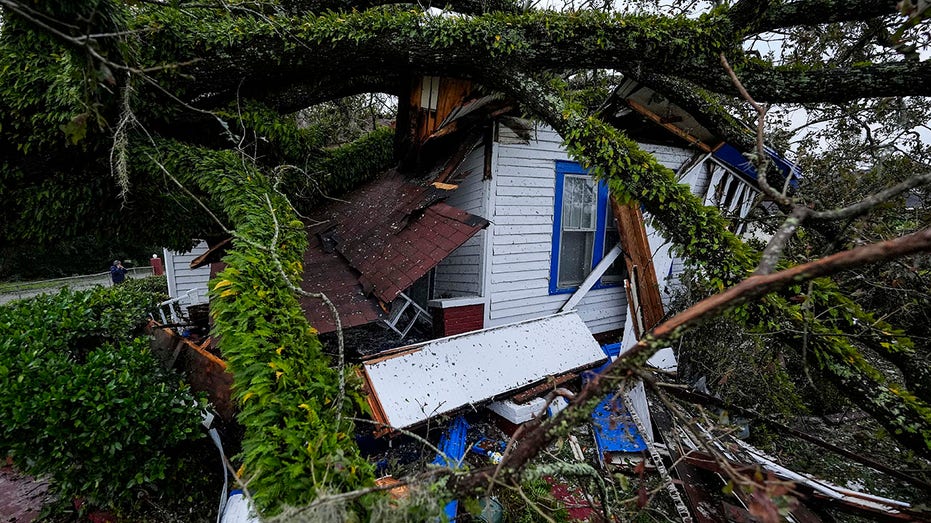Senate Majority Leader Chuck Schumer needs to “immediately reconvene” the upper chamber so it can consider measures to approve FEMA funding in the wake of Hurricane Helene’s devastation, Sen. Rick Scott said in a statement today.
“While I know from my experience with previous hurricanes that FEMA and SBA damage assessments take time, I am today urging Majority Leader Chuck Schumer to immediately reconvene the U.S. Senate when those assessments are completed so that we can pass the clean supplemental disaster funding bill and other disaster relief legislation, like my Federal Disaster Tax Relief Act, needed to ensure the full recovery of families in all impacted communities,” said the Florida Republican.
On Saturday night, following Sen. Scott and Sen. Marco Rubio’s letter to President Joe Biden urging his immediate approval of a Major Disaster Declaration for the State of Florida, President Biden approved the request. This Major Disaster Declaration approval follows last week’s approval of the State of Florida’s request for a pre-landfall emergency declaration for potentially impacted Florida counties at the request of Senators Scott and Rubio.
The interim spending bill approved last week to avoid a government shutdown “anticipated” the possibility of Hurricane Helene ravaging parts of the U.S. So that’s why lawmakers made sure that FEMA could spend down its current reserves more quickly to respond to immediate needs after the storm. Moreover, a senior House Republican source told Fox that “this is why it would have been a bad idea to shut down the government.”
BIDEN GETS DEFENSIVE WHEN PUSHED ON WHO’S COMMANDING’ HURRICANE HELENE RESPONSE
But earlier today, ahead of Scott’s statement, a senior congressional source familiar with the purse strings conceded that “it would not surprise me” if lawmakers were recalled to Washington to approve additional money to respond to immediate needs because the devastation has been so bad.”
“I’m not adverse to that,” said one senior House Republican. “And I would not agree with those who say we’re not coming back.”
That said, another senior House Republican told Fox, “We will definitely need to appropriate emergency funds. Western North Carolina is like New Orleans during Katrina.” But the source cautioned that it was doubtful Congress would have to act in the next month. That’s different compared to Congress coming back into an emergency session just days after Hurricane Katrina ravaged the Gulf Coast in 2006.
One thing to watch in the coming days is whether or not FEMA has enough money in the near-term to respond to the catastrophic impact of Helene.
Congress left town without providing enough disaster relief to address “older” natural disasters. In particular, there has been a push to provide more money to address Hurricane Beryl which hit Texas in July. There are also issues responding to tornadoes in Iowa. And there is a longstanding issue with providing enough money to Hawaii after wildfires charred Maui last year.
Some lawmakers wanted the additional disaster aid loaded onto the interim spending bill that Congress approved last week to keep the government open — and then left town through mid-November.
However, the temporary spending bill did give FEMA authority to draw down the Disaster Relief Fund (DRF) more rapidly. The question is whether the DRF bottoms out after Helene. Or, certainly if there are impacts from other potential storms that may soon churn in the Gulf of Mexico. Fox is told a combination of another storm — coupled with addressing needs following Helene — could bleed the coffers at FEMA.
That said, one source familiar with congressional spending indicated that despite the near-apocalyptic nature of Helene, we just don’t know enough yet about the needs. A better sense of things could come later this week.
So what happens if FEMA’s Disaster Relief Fund dwindles too much?
Congress could be recalled to re-load the fund. That happened in the late summer of 2005 following Hurricane Katrina. Congress was out of session during the customary August recess — which often stretches a few days into early September. Several days after Katrina hit, it was clear that the impacts would drain FEMA’s funds quickly. In a dramatic midnight session, then-Senate Majority Leader Bill Frist (R-TN) recalled the Senate and a skeleton crew to approve the additional aid. The House shortly followed suit.


